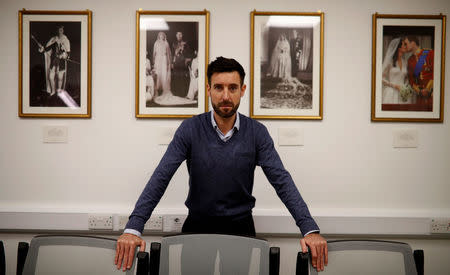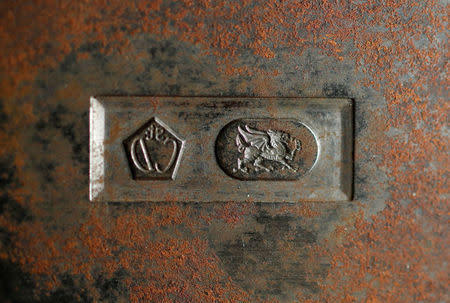Markle's wedding ring expected to follow royal tradition of Welsh gold
BODELWYDDAN, Wales (Reuters) - (This March 21 story corrects to show the first use of gold from Wales in 1923 was for a wedding ring, not other jewellery; that Clogau Gold of Wales only owns Gwynfynydd mine; that Clogau Gold of Wales did not supply the royals with gold; that the Clogau St David and Gwynfynydd mines are not both in Bontddu; other details)
When Britain's Prince Harry marries Meghan Markle in May he is expected to follow a royal tradition started nearly 100 years ago of using a wedding band of Welsh gold.
His great-grandmother, Queen Elizabeth the Queen Mother, was the first to use gold from Wales in a wedding ring when, as Elizabeth Bowes Lyon, she married the future King George VI in 1923.
Her example was followed by the current Queen Elizabeth when she married Prince Philip in 1947 and then by royals through to Prince William's wedding to Catherine Middleton in 2011.
For Markle's wedding, the rare gold ring with the Welsh dragon stamp will probably be made by jeweller Wartski at its London workshop, said Ben Roberts, managing director of Clogau Gold of Wales, which uses gold from the same mines from which gold was gifted to the royals.
Roberts said he thought the ring would be a yellow shade of gold to match Markle's engagement ring, which was designed by Prince Harry and features three diamonds.
"Looking at her engagement ring, it will probably have to match, so it will probably be yellow," he told Reuters, rather than the distinctive rose-gold commonly used in the company's jewellery designs.
The royals first received Welsh gold from the Clogau St David mine in 1923. In 1986, the queen received a second gift of Welsh gold by the British Legion from Gwynfynydd mine which is now owned by Clogau Gold of Wales.
The 24-carat Welsh gold has a higher percentage of pure gold than standard 18-carat gold, giving it a rich, warm colour.
If Welsh gold is used in Markle’s ring, Roberts said official confirmation from the palace will only come after the wedding.
The Clogau St David and Gwynfynydd mines, both in northwest Wales, are currently closed, having last operated in the 1990s. As finite gold resources are running out, Roberts has plans to reopen Gwynfynydd in the near future and invite the queen's son and heir Prince Charles to visit the mine.
(Editing by Stephen Addison and William Schomberg)

 Yahoo News
Yahoo News 










